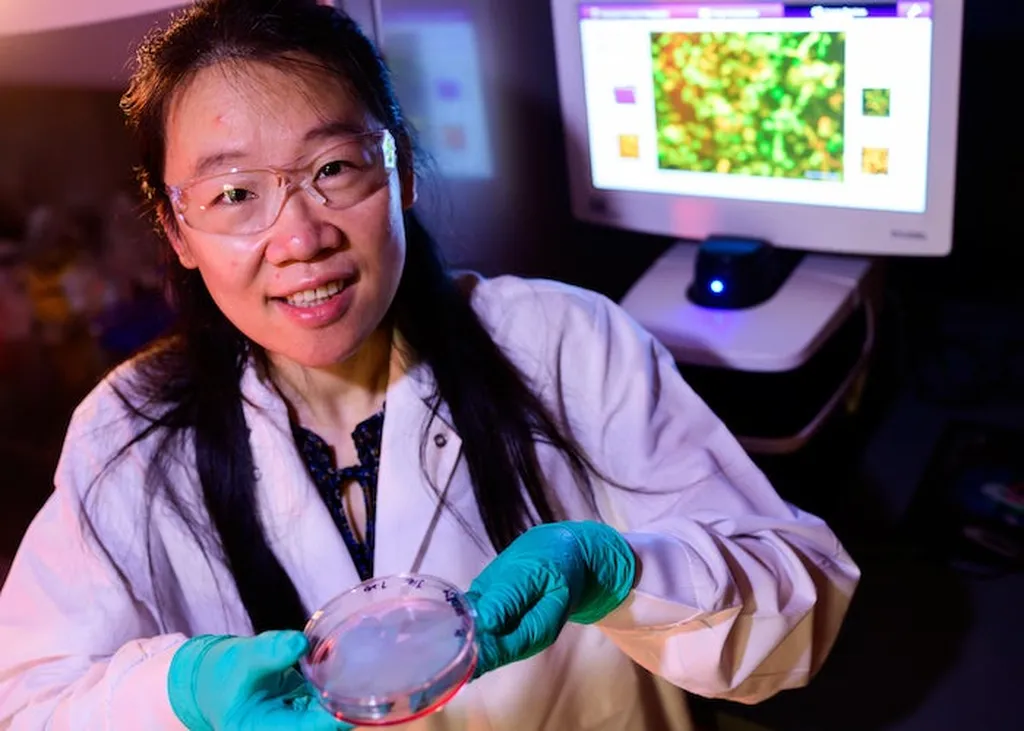In the heart of South Korea, researchers at Chonnam National University have made a significant stride in understanding the genetic mechanisms that govern rice seed quality. Led by Jinpyo So from the Department of Biotechnology, the team has identified nine novel transcription factors (TFs) that play a crucial role in the regulation of seed storage proteins (SSPs) in rice. This discovery, published in the journal ‘Plants’ (translated as ‘Plants’), could pave the way for enhancing the nutritional value and quality of rice, a staple food for over half of the world’s population.
Seed storage proteins are the primary components that determine the nutritional content and quality of rice seeds. By conducting a transcriptome-based correlation analysis, the researchers identified nine TFs—OsGATA8, OsMIF1, OsMIF2, OsGZF1, OsbZIP58, OsS1Fa1, OsS1Fa2, OsICE2, and OsMYB24—that exhibit strong co-expression with key SSP genes, including those encoding glutelin and prolamin. These proteins are essential for seed development and maturation.
The team’s findings revealed that these TFs are predominantly expressed during seed development, with peak expression observed at 10 days after flowering (DAF). “This temporal expression pattern suggests that these TFs are likely involved in the regulation of SSP biosynthesis and accumulation during critical stages of seed development,” explained So.
To further validate their findings, the researchers conducted gene expression profiling using quantitative RT-PCR and GUS reporter assays. They also performed promoter analysis, which demonstrated an enrichment of seed-specific and hormone-responsive cis-regulatory elements. This reinforces the seed-preferential expression patterns of these TFs and highlights their potential role in seed maturation.
The implications of this research are far-reaching, particularly for the agricultural and biotechnological sectors. By understanding the genetic mechanisms that regulate SSPs, researchers can develop targeted breeding strategies and biotechnological approaches to enhance rice seed quality and nutritional content. This could lead to the development of rice varieties with improved nutritional profiles, benefiting both farmers and consumers.
Moreover, this research could have significant commercial impacts for the energy sector. Rice is not only a vital food crop but also a potential source of bioenergy. Enhancing the quality and nutritional content of rice seeds could make them more suitable for bioenergy production, contributing to the development of sustainable and renewable energy sources.
As the world grapples with the challenges of food security and climate change, research like this offers a glimmer of hope. By unraveling the genetic secrets of rice, scientists are paving the way for a more sustainable and food-secure future. “Our findings provide a foundation for the genetic enhancement of rice seed quality and nutritional content,” said So. “This could have profound implications for global food security and the development of sustainable agricultural practices.”
In the quest for better crops and sustainable food systems, every discovery counts. This research is a testament to the power of scientific inquiry and its potential to transform the world. As we look to the future, the insights gained from this study will undoubtedly shape the development of new agricultural technologies and strategies, ensuring a more resilient and food-secure world for generations to come.

